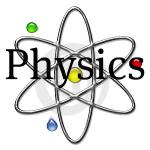|
This section contains 1,026 words (approx. 4 pages at 300 words per page) |

|
In some ways we would not have computers today were it not for physics. Furthermore, the needs of physics have stimulated computer development at every step. This all started due to one man's desire to eliminate needless work by transferring it to a machine.
Charles Babbage (1791–1871) was a well-to-do Englishman attending Cambridge University in the early 1800s. One day he was nodding off over a book containing tables of astronomical phenomena. He fancied that he would become an astronomical mathematician. The motion of heavenly bodies was, of course, governed by the laws of physics. For a moment, he thought of having the tables calculated automatically. This idea came up several times in succeeding years until he finally designed a calculator, the Difference Engine, that could figure the numbers and print the tables. A version of the Difference Engine made by someone else found its...
|
This section contains 1,026 words (approx. 4 pages at 300 words per page) |

|



